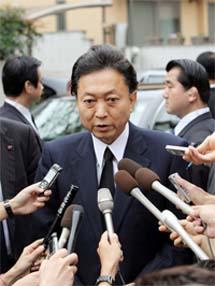This is Mr Hatoyama’s debut at the APEC Summit and there will be high expectations of his role on two key questions. How will his conception of Japan’s interest in East Asian arrangements ─ and the ideas floated in his famous essay in Voice – translate into APEC, where the United States and Russia are prominent members? And what ideas will he and his ministers bring to the APEC agenda for carriage into the 2010 APEC Summit in Yokohama and beyond when President Obama takes leadership of APEC in 2011?
APEC has provided a workable strategy in trade and economic diplomacy in East Asia and the Pacific. Its policies of liberalisation and reform, organised around the principle of open regionalism (a strategy well-suited to the development, objectives and diversity of the Asia Pacific region) helped APEC to establish an impressive record of achievement in its first twenty years. But after the Asian financial crisis and the global financial crisis, there are new regional and global arrangements (ASEAN +3, ASEAN+6 and the G20 group) to which APEC must now relate more strategically. And there is a whole new economic and political agenda to navigate.
On the economic front, Japan’s task in 2010 will be to put to bed the Bogor goals on trade and investment liberalisation for developed economies. The Bogor goals, adopted by APEC leaders in Indonesia in 1994, targeted liberalisation of trade and investment by industrialised economies (like Australia and Japan) by 2010 and developing countries (like China and ASEAN) by 2020. Since then Bogor has been a major component of APEC’s agenda. The Hatoyama government must be prepared to test new ideas about how to deal with Japan’s agricultural problem, since agricultural trade protection is the major stumbling block to Japan’s leadership in regional trade liberalisation. That will require an entirely new approach to Japan’s residual barriers to agricultural trade at the border.
It also requires shifting the focus decisively towards deeper integration through a regional commitment to structural reform and institutional harmonisation (with full participation by China, for example, in working through the big issues there are on foreign investment). It means linking APEC’s work to the G20 process through leadership by the eight G20 countries already within APEC, plus India, when it becomes an APEC member.
APEC’s political achievements are as important, if not more so, than its economic achievements. It has served to facilitate political dialogue and ameliorate political tensions among the major Asia Pacific powers (as between China and the United States after Tiananmen and the tension over Taiwan in 1996, China and Japan after trade disputes in 1994 and problems under the Koizumi administration and, Australia and Indonesia over East Timor). This has been the lynchpin of its success. APEC’s position as the primary political meeting in the Asia Pacific region remains unchallenged.
APEC has also provided opportunity for informal dialogue on a variety of issues such as anti-terrorism measures, climate change and energy security. Non-member countries like India are queuing up to be permitted a place at APEC’s table once the embargo on new member economies expires at the Yokohama meeting in 2010. As a major player among the emerging economies with a key role in world trade policy outcomes, its claims to membership are powerful.
On the political front, Australian Prime Minister Rudd has proposed the idea of an Asia Pacific Community that aims at elevating the political and security dialogue among the major Asia Pacific players. The change in the structure of regional economic and political power, with the rise of China and India, recommends steps in that direction. The Rudd government has seized on the strategic importance of the big power shifts in Asia since it came to power in 2007. The Asia Pacific Community idea needs to relate to APEC and East Asian structures if it is both to be accepted and serve its underlying political-security purpose. It would be sensible for Japan to grab the initiative in taking this idea forward and to host a small informal meeting at the Yokohama Summit. The idea is only worthwhile and practical if it limits dialogue to the nine or so major players. Such a meeting would have to link to the East Asian Summit process by inviting India to join, segueing into India’s membership of APEC.
APEC can seize the opportunity in 2010 to bring a more representative collection of East and South Asian economies to the APEC table (that means India) and initiate its first explicit side-dialogue on political and security affairs. Although it cannot encompass all APEC’s membership, or all the membership of EAS, a dialogue on political and security affairs needs to represent both.
Achieving these synergies in 2010 would be a diplomatic triumph for Prime Minister Hatoyama and put Japan exactly where it needs to be as a central player in regional affairs.

